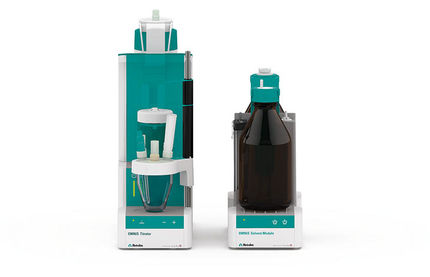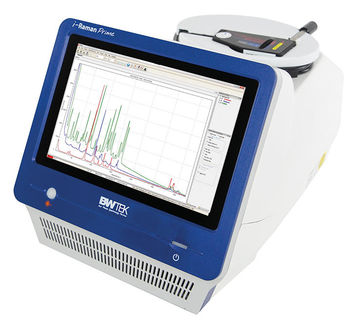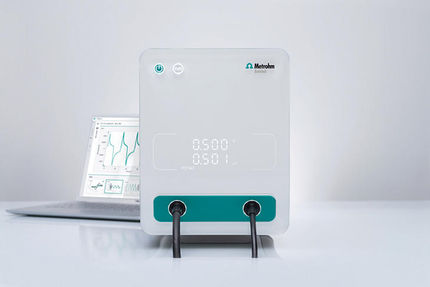Hyperchloremia
Classification & external resources
| ICD-10
| E87.8
|
| ICD-9
| 276.9
|
Hyperchloremia is an electrolyte disturbance in which there is an abnormally elevated level of the chloride ion in the blood. The normal serum range for chloride is 97 to 107 mEq/L. Hyperchloremia is defined as a chloride concentration exceeding this level.
Symptoms
Often hyperchloremia does not produce any symptoms. However, hyperchloremia is sometimes associated with excess fluid loss such as vomiting and diarrhea. If the sufferer is a diabetic, hyperchloremia may lead to poor control of blood sugar levels, causing them to become elevated. Hyperchloremia can be symptomatic with signs of Kussmaul's breathing, weakness, and intense thirst.
Causes
Elevations in chloride may be associated with diarrhea, certain kidney diseases, and overactivity of the parathyroid glands. Hyperchloremia is often comorbid with diabetes or hyponatremia. Certain drugs, especially diuretics such as carbonic anhydrase inhibitors, hormonal treatments, and polypharmacy, may contribute to this disorder.
Treatment
As with most types of electrolyte imbalance, the treatment of high blood chloride levels is based on correcting the underlying cause.
- If the patient is dehydrated, therapy consists of establishing and maintaining adequate hydration.
- If the condition is caused or exacerbated by medications or treatments, these may be altered or discontinued, if deemed prudent.
- If there is underlying kidney disease (which is likely if there are other electrolyte disturbances), then the patient will be referred to a nephrologist for further care.
- If there is an underlying dysfunction of the endocrine or hormone system, the patient will likely be referred to an endocrinologist for further assessment.
References
| Metabolic pathology / Inborn error of metabolism (E70-90, 270-279) |
|---|
| Amino acid | Aromatic (Phenylketonuria, Alkaptonuria, Ochronosis, Tyrosinemia, Albinism, Histidinemia) - Organic acidemias (Maple syrup urine disease, Propionic acidemia, Methylmalonic acidemia, Isovaleric acidemia, 3-Methylcrotonyl-CoA carboxylase deficiency) - Transport (Cystinuria, Cystinosis, Hartnup disease, Fanconi syndrome, Oculocerebrorenal syndrome) - Sulfur (Homocystinuria, Cystathioninuria) - Urea cycle disorder (N-Acetylglutamate synthase deficiency, Carbamoyl phosphate synthetase I deficiency, Ornithine transcarbamylase deficiency, Citrullinemia, Argininosuccinic aciduria, Hyperammonemia) - Glutaric acidemia type 1 - Hyperprolinemia - Sarcosinemia |
|---|
| Carbohydrate | Lactose intolerance - Glycogen storage disease (type I, type II, type III, type IV, type V, type VI, type VII) - fructose metabolism (Fructose intolerance, Fructose bisphosphatase deficiency, Essential fructosuria) - galactose metabolism (Galactosemia, Galactose-1-phosphate uridylyltransferase galactosemia, Galactokinase deficiency) - other intestinal carbohydrate absorption (Glucose-galactose malabsorption, Sucrose intolerance) - pyruvate metabolism and gluconeogenesis (PCD, PDHA) -
Pentosuria - Renal glycosuria |
|---|
| Lipid storage | Sphingolipidoses/Gangliosidoses: GM2 gangliosidoses (Sandhoff disease, Tay-Sachs disease) - GM1 gangliosidoses - Mucolipidosis type IV - Gaucher's disease - Niemann-Pick disease - Farber disease - Fabry's disease - Metachromatic leukodystrophy - Krabbe disease
Neuronal ceroid lipofuscinosis (Batten disease) - Cerebrotendineous xanthomatosis - Cholesteryl ester storage disease (Wolman disease) |
|---|
| Fatty acid metabolism | Lipoprotein/lipidemias: Hyperlipidemia - Hypercholesterolemia - Familial hypercholesterolemia - Xanthoma - Combined hyperlipidemia - Lecithin cholesterol acyltransferase deficiency - Tangier disease - Abetalipoproteinemia
Fatty acid: Adrenoleukodystrophy - Acyl-coA dehydrogenase (Short-chain, Medium-chain, Long-chain 3-hydroxy, Very long-chain) - Carnitine (Primary, I, II) |
|---|
| Mineral | Cu Wilson's disease/Menkes disease - Fe Haemochromatosis - Zn Acrodermatitis enteropathica - PO43�' Hypophosphatemia/Hypophosphatasia - Mg2+ Hypermagnesemia/Hypomagnesemia - Ca2+ Hypercalcaemia/Hypocalcaemia/Disorders of calcium metabolism |
|---|
Fluid, electrolyte
and acid-base balance | Electrolyte disturbance - Na+ Hypernatremia/Hyponatremia - Acidosis (Metabolic, Respiratory, Lactic) - Alkalosis (Metabolic, Respiratory) - Mixed disorder of acid-base balance - H2O Dehydration/Hypervolemia - K+ Hypokalemia/Hyperkalemia - Cl�' Hyperchloremia/Hypochloremia |
|---|
| Purine and pyrimidine | Hyperuricemia - Lesch-Nyhan syndrome - Xanthinuria |
|---|
| Porphyrin | Acute intermittent, Gunther's, Cutanea tarda, Erythropoietic, Hepatoerythropoietic, Hereditary copro-, Variegate |
|---|
| Bilirubin | Unconjugated (Lucey-Driscoll syndrome, Gilbert's syndrome, Crigler-Najjar syndrome) - Conjugated (Dubin-Johnson syndrome, Rotor syndrome) |
|---|
| Glycosaminoglycan | Mucopolysaccharidosis - 1:Hurler/Hunter - 3:Sanfilippo - 4:Morquio - 6:Maroteaux-Lamy - 7:Sly |
|---|
| Glycoprotein | Mucolipidosis - I-cell disease - Pseudo-Hurler polydystrophy - Aspartylglucosaminuria - Fucosidosis - Alpha-mannosidosis - Sialidosis |
|---|
| Other | Alpha 1-antitrypsin deficiency - Cystic fibrosis - Amyloidosis (Familial Mediterranean fever) - Acatalasia |
|---|
|







